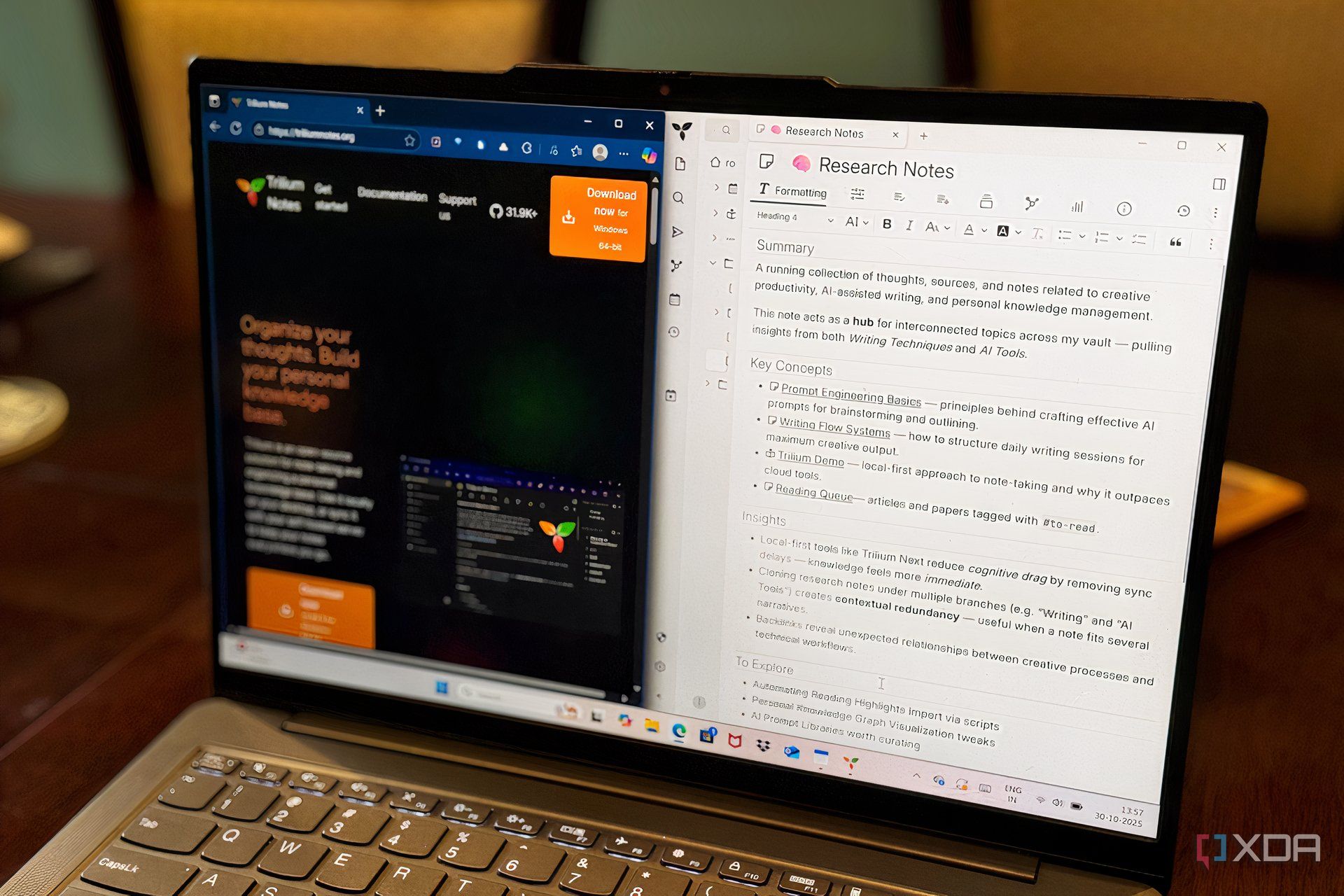UPDATE: Users are swiftly migrating from Notion to Trilium Next, a self-hosted knowledge base, as reports indicate growing frustration with Notion’s performance issues. Many users are seeking faster access to their notes and a more reliable system to manage their ideas.
Trilium Next, described as a free, open-source tool, allows users to run their knowledge bases locally, eliminating the dreaded loading times associated with cloud services. This migration trend highlights a significant shift in user priorities as they demand immediate access to their information without delays.
Latest data shows that Notion’s block-based architecture, while initially praised for its flexibility, has become cumbersome for users managing thousands of notes. Frequent loading spinners and slow searches have led to a frustrating experience that many report feeling like an eternity when capturing ideas or referencing notes.
In contrast, Trilium Next boasts lightning-fast retrieval times, allowing users to access their notes in milliseconds. This immediacy is crucial for writers and researchers who require seamless interaction with their knowledge bases. As one user noted, “When you’re capturing ideas mid-conversation or referencing notes during a meeting, three seconds of lag feels like an eternity.”
Self-hosting is often perceived as complicated, but the installation process for Trilium Next is surprisingly straightforward. Users can set it up on their systems—whether Windows, macOS, or Linux—in under five minutes. With no reliance on cloud services, users experience a newfound control over their data, which many find liberating.
The hierarchical organization of notes in Trilium Next is another impressive feature. Users can create relational links that reflect their thought processes more naturally than traditional note-taking apps. This functionality allows for notes to exist in multiple categories without duplication, fostering a more intuitive knowledge management experience.
Migration statistics reveal that while exporting from Notion can be messy, users have reported that the process of transferring to Trilium Next was easier than anticipated. The challenge lay not in the technical aspects but in overcoming the mental adjustment to the new system’s speed and efficiency.
While Trilium Next is gaining popularity, experts caution that it may not be suitable for everyone. Collaborative teams may still find Notion’s interface superior for real-time editing and shared workspaces. However, for individuals prioritizing speed and ownership over aesthetic polish, Trilium Next offers a compelling alternative.
As users continue to flock to Trilium Next for its responsiveness and control, the implications for the future of digital note-taking are profound. Many users are transforming their workflows, finding that the platform’s speed significantly enhances their productivity.
For those in the market for a knowledge management solution, Trilium Next represents a breakthrough in personal data management, proving that speed and efficiency can redefine how we interact with our ideas. The urgent demand for alternatives to Notion is indicative of a larger trend toward more user-controlled platforms in an increasingly cloud-dependent world.
Stay tuned for more updates as this story develops.





































































